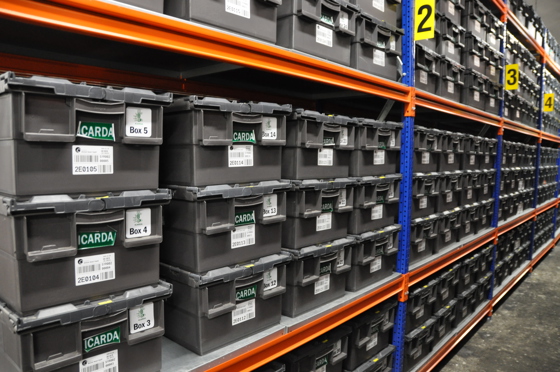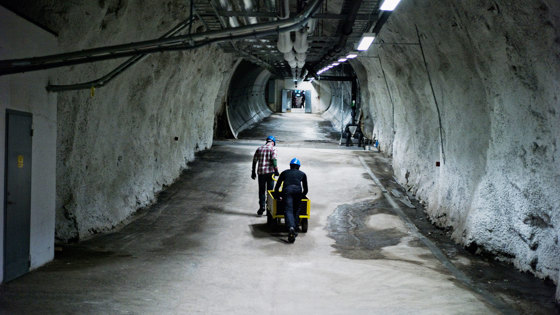New seeds from Syria to the Svalbard Global Seed Vault
Historical archive
Published under: Solberg's Government
Publisher: Ministry of Agriculture and Food
News story | Date: 27/02/2017
For the first time, seeds that had been retrieved from secure storage have been returned to the seed vault in Svalbard. Forced to retrieve seed deposits from Svalbard in the fall of 2015, the international research centre ICARDA, previously operating out of Aleppo, Syria, was last week returning newly recultivated seed stock.
Around 14.000 packets of grains and legumes seeds, recultivated in Lebanon and Morocco, were redeposited in the vault, and this amounts to half of what was retrieved in 2015. ICARDA is working on shipping more seeds to the vault, while also deliberating whether retrieving further deposits from the vault will be necessary. ICARDA is an international agricultural research centre for dry-land agriculture, and plays a vital role in contributing resources and technology to build up agriculture in one of the world's most vulnerable regions, both in terms of unrest and drought.
- That these freshly recultivated seeds now return to the seed vault is exceptionally important. With these seeds, food production in Syria may be reestablished much sooner, once military conflict ends, the Minister for Agriculture and Food Jon Georg Dale says. It is a large and important task to keep all genetic material which is important for global food security, he adds.


In addition, seeds from these countries were deposited last week:
|
James Hutton Institute |
UK |
|
CGN |
Netherlands |
|
Scientific Practical Centre of the NAS of Belarus for Arable Farming |
Belarus |
|
CIMMYT |
Mexico |
|
Genetic Resources Institute, Univ.Banja Luka |
Bosnia&Herzegovina |
|
Seed Savers |
US |
|
Ministry of Natural Resources and Environmental Conservation |
Myanmar |
|
NBPGR |
India |
|
AfricaRice |
Benin |
|
National Agricultural Research Centre |
Pakistan |
|
ICARDA |
Lebanon, Morocco |
Safe and secure long-term storage
Svalbard Global Seed Vault can hold 4.5 million different seed types and can thus accommodate duplicates of all the unique seed types that currently exist in many gene banks around the world, in addition to new seed types which will be collected in the future. Seeds from around the globe are packed in crates and shipped in for safe and secure long-term storage in cold and dry rock caverns. The aim of the seed vault is to preserve the great genetic variation within the world's food crops. Every seed sample could potentially turn out to be crucial to farmers, researchers and agribusinesses as they produce food for an increasing world population. Svalbard Global Seed Vault is a worldwide insurance policy for food supply for future generations.
The Seed Bank was established and is fully funded by the Norwegian government, with the responsibility for operations assigned to The Ministry of Agriculture and Food. The Ministry coordinates daily operation with the Nordic Gene Resource Centre and the Global Crop Diversity Trust, and receives guidance from a dedicated international council established to advise the Seed Bank.